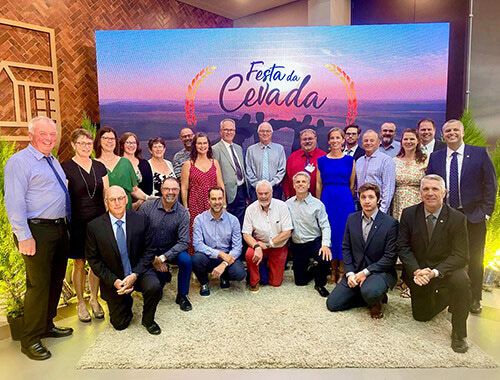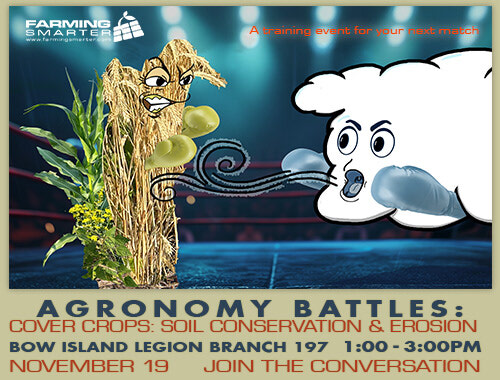Report of the Prairie Farmer & Rancher Forum
Thirty-six producers came together in early 2024 to form the Prairie Farmer & Rancher Forum. These farmers and ranchers were randomly selected through a civic lottery process to broadly represent the demographic diversity and different production systems of Prairie agriculture. This citizens’ assembly model has been used successfully in other sectors in Canada to develop grassroots policy recommendations, but it has never before been employed in the agriculture sector. The Forum’s mandate was to examine issues and opportunities related to climate change and enhancing sustainable agriculture production on the Canadian Prairies. Our goal was to develop recommendations for a strong, sustainable, and prosperous Prairie agriculture sector.
Forum members met for multi-day meetings on three separate occasions to hear from experts on climate change, soil health, data and measurement, nutrient management, and a number of other topics related to sustainability and land stewardship, and to formulate recommendations for improvement. Between meetings, Forum members consulted with others in their communities to seek input and suggestions.
The Forum came to a strong consensus on a set of guiding principles and 36 recommendations centred around measurement, livestock management, soil health, natural habitat, nitrogen management, and energy. These recommendations are practical, achievable, and they are rooted in the experience of Forum members.
Together, the recommendations offer the sector a starting point for improving sustainability and profitability in Prairie agriculture.
The 36 Forum members varied by age, gender, location, scale, and type of production. Members were also selected to represent a range of opinions on climate change, from those who do not believe that human-caused climate change is occurring, to those who see global warming as a threat to human civilization, with many gradients of opinion in between.
This diversity led to conflict and disagreement at the first meeting, but Forum members made a conscious decision to set aside their personal views on climate change in an effort to find areas of common interest. The members soon realized that they did not need to agree on the problem in order to agree on good recommendations that make a difference for our industry and the environment. Everyone agreed that promoting soil health is important, for example, but different members prioritized different outcomes—for some, the primary motivation for improving soil health was increased productivity and profitability; for others, it was mitigating greenhouse gas emissions and sequestering atmospheric carbon. Maintaining profitability and productivity was a priority for many. In the end, a universal commitment to long-term land stewardship brought Forum members together and led to agreement on an ambitious set of recommendations. It is important to note that none of the recommendations directly mention climate change. Forum members found language that everyone could get behind and that would lead to the positive outcomes that each member prioritized.
In an era of increasing polarization, the Prairie Farmer & Rancher Forum is an example of how a collaborative, honest, and open process of deliberation and dialogue can lead to consensus on substantial policy recommendations. It is also a testament to the wisdom, knowledge, and experience of Prairie producers.
Forum members are hopeful that all actors in the Canadian agri-food system— including primary producers, farm and ranch organizations, industry groups, food buyers and retailers, governments and consumers—will work to implement these recommendations and join in the vision of a healthy, sustainable, and prosperous Prairie agriculture sector, now and in the future.
Associated Links
- Learn more about the Prairie Farmer & Rancher Forum
- Read the Report Summary
- Read the Full Report



